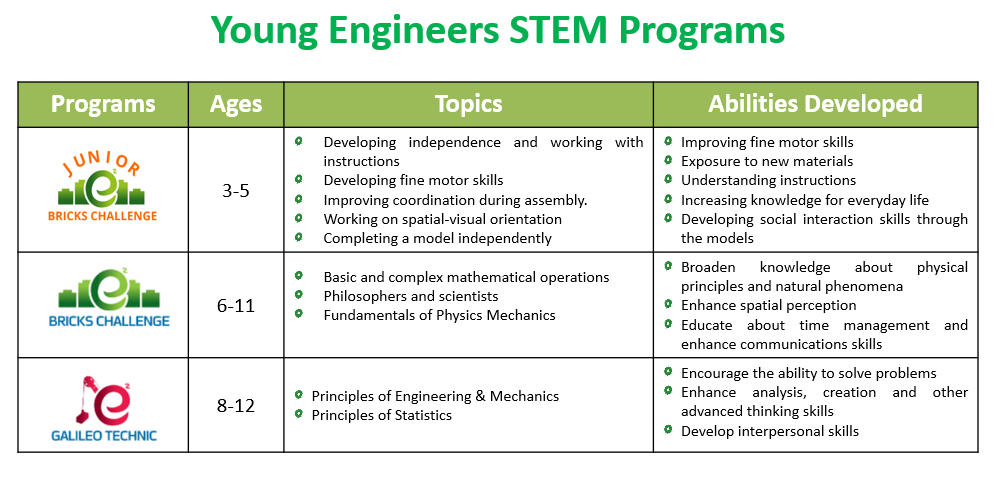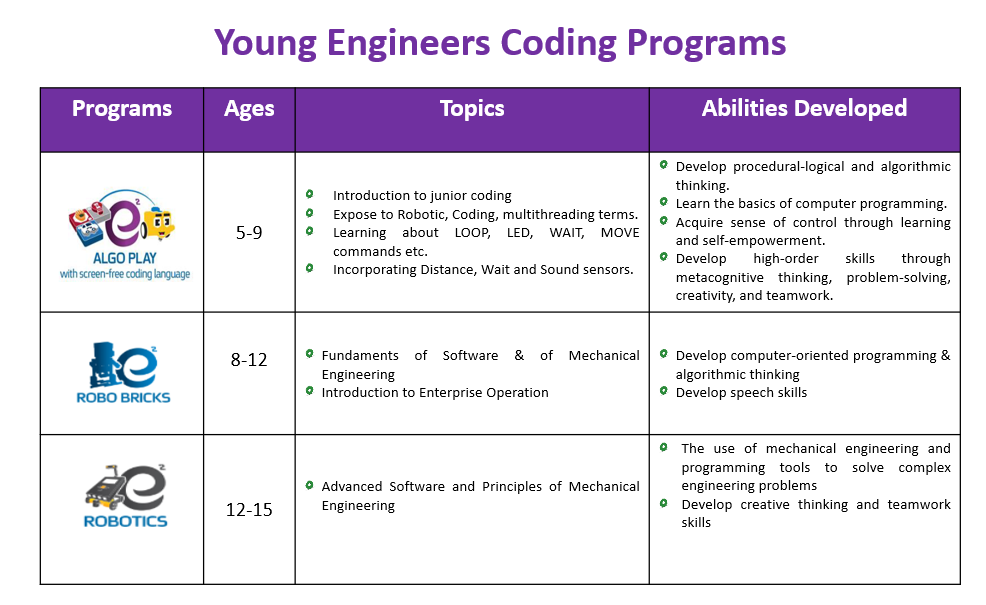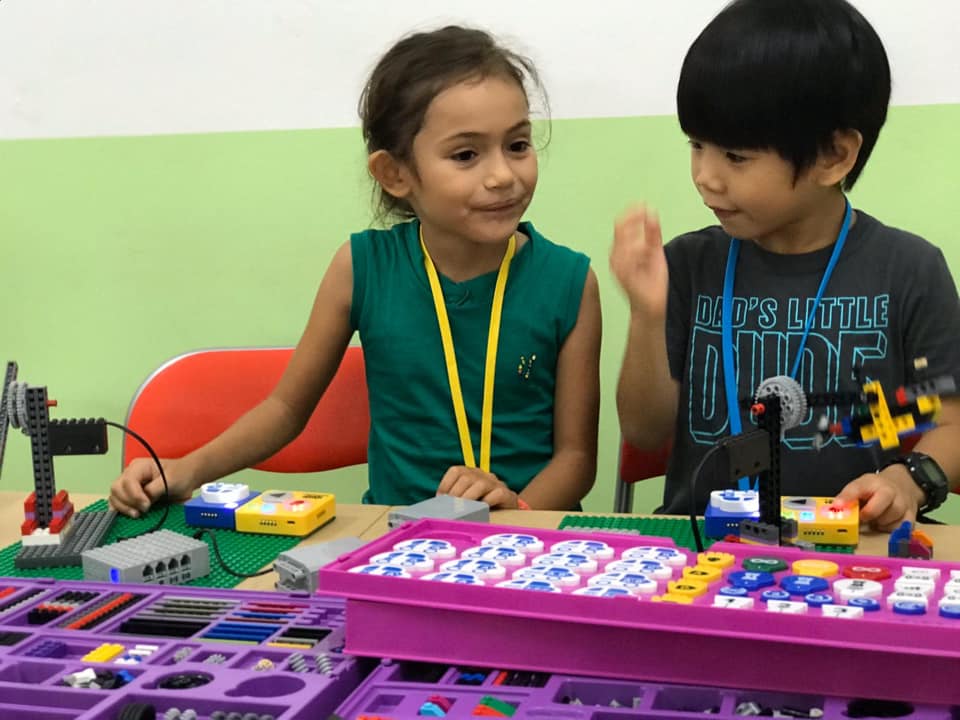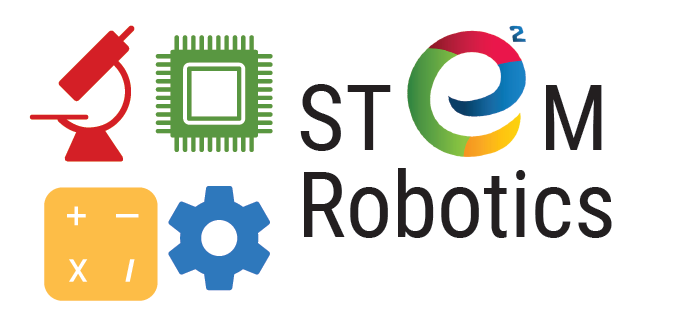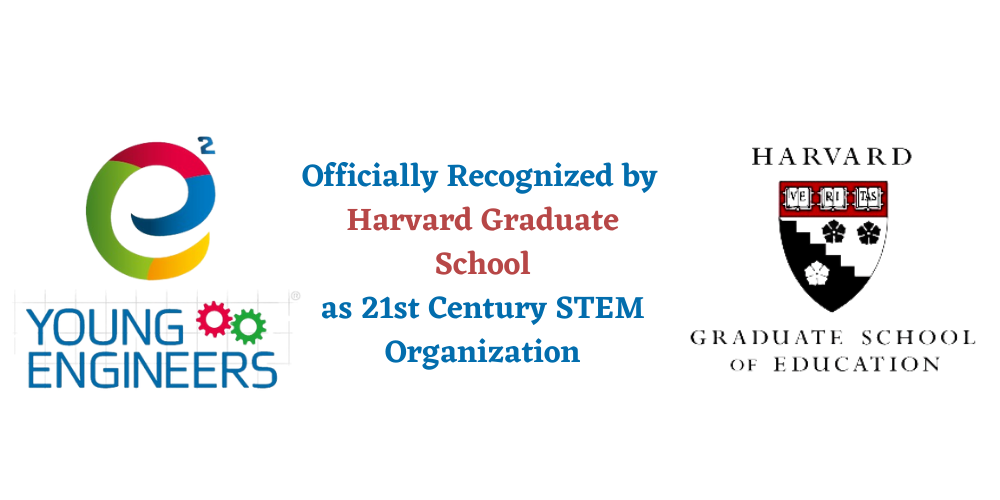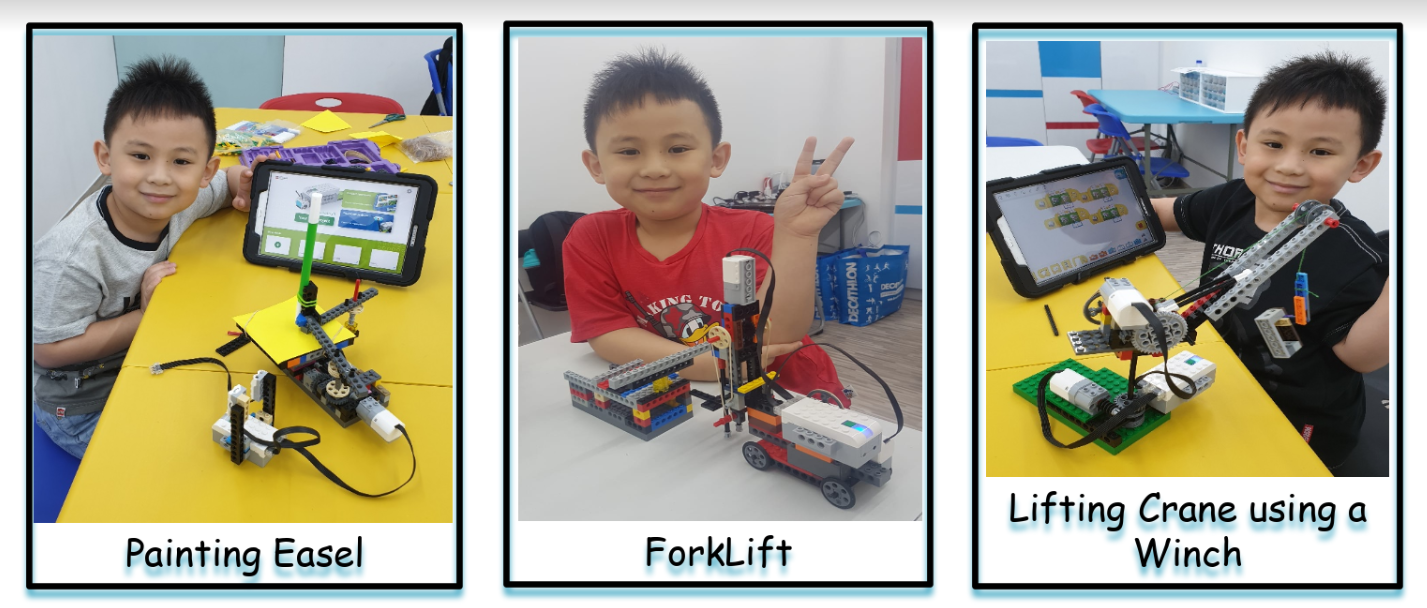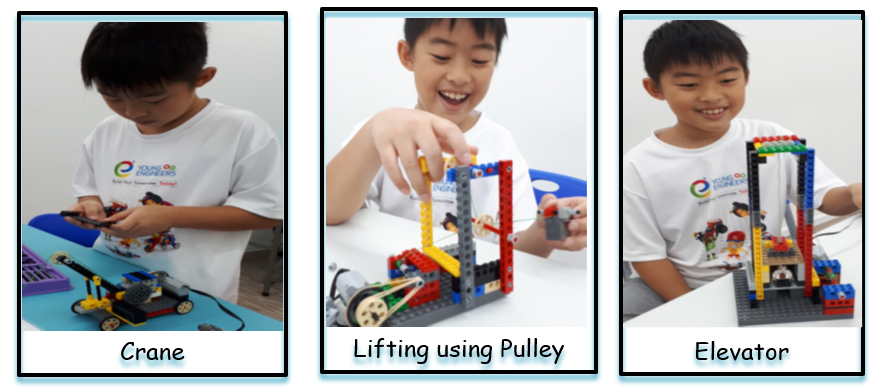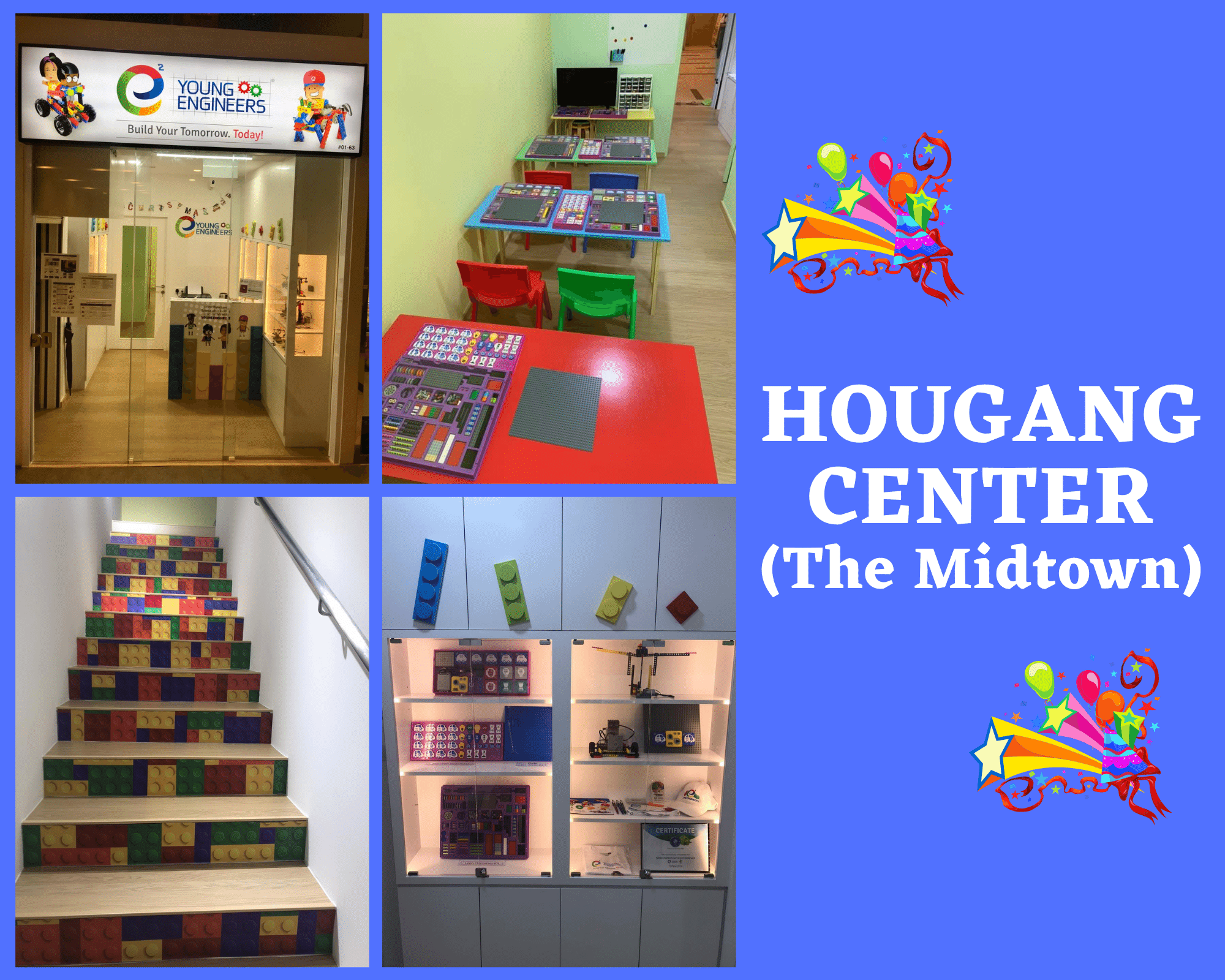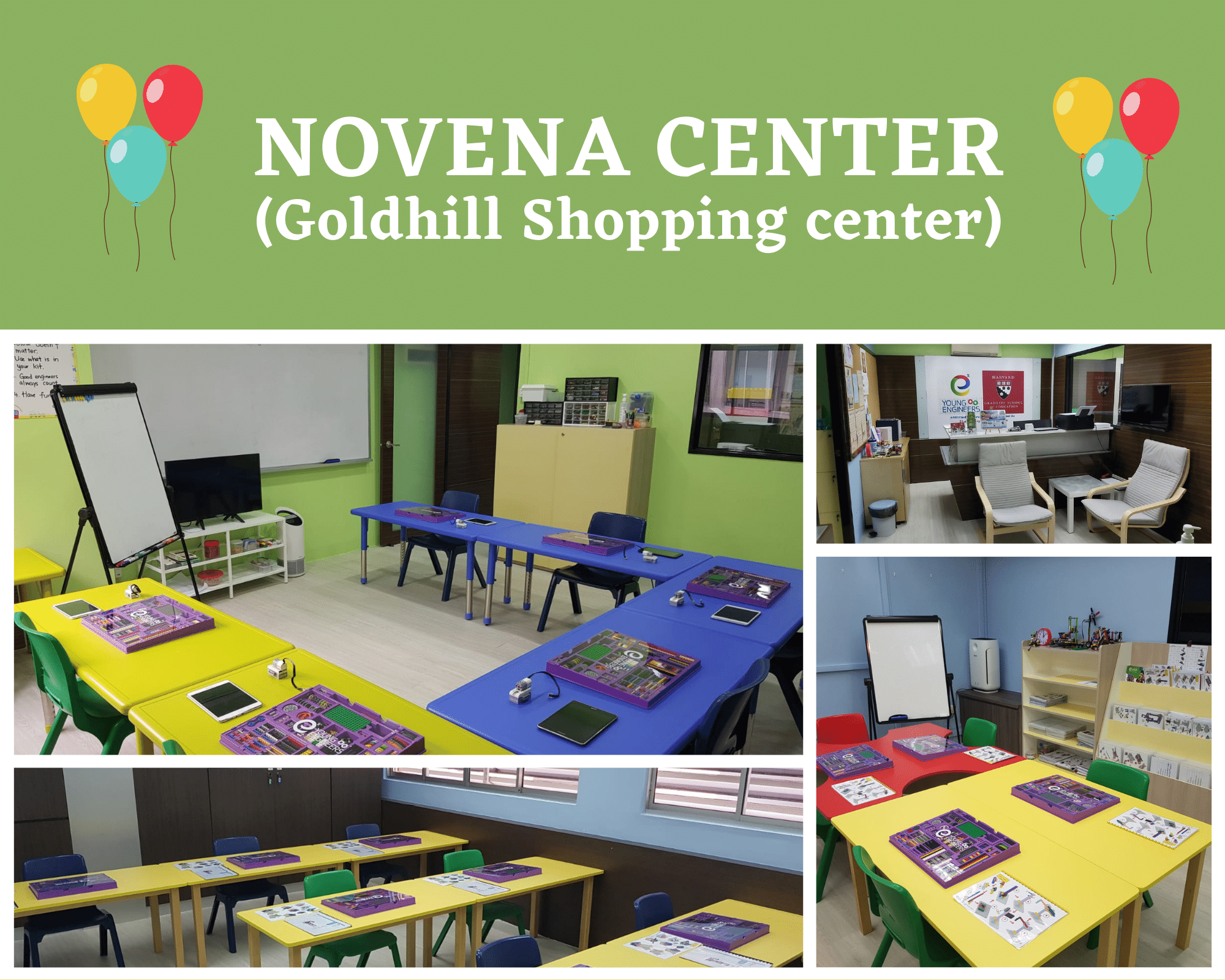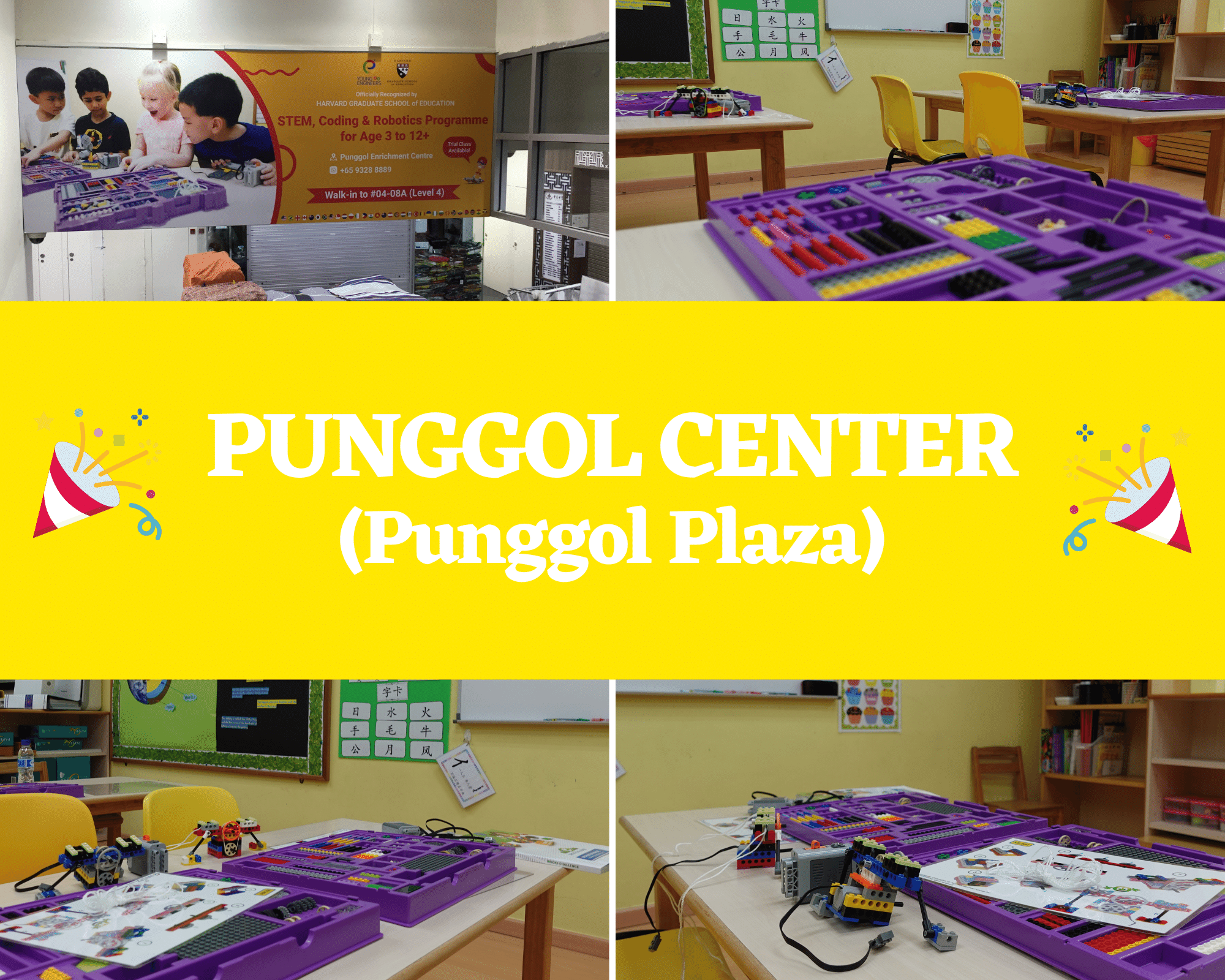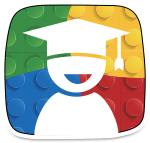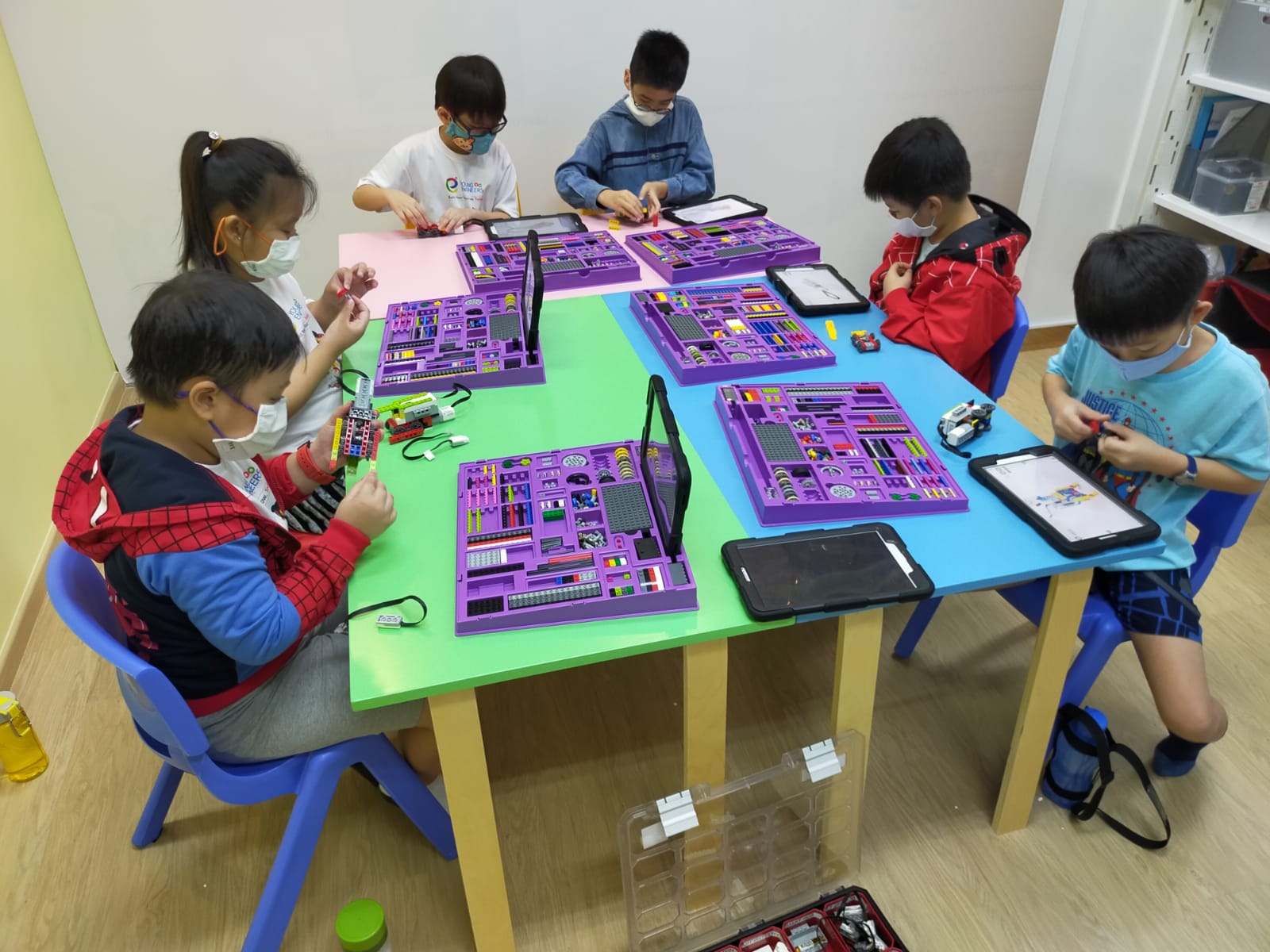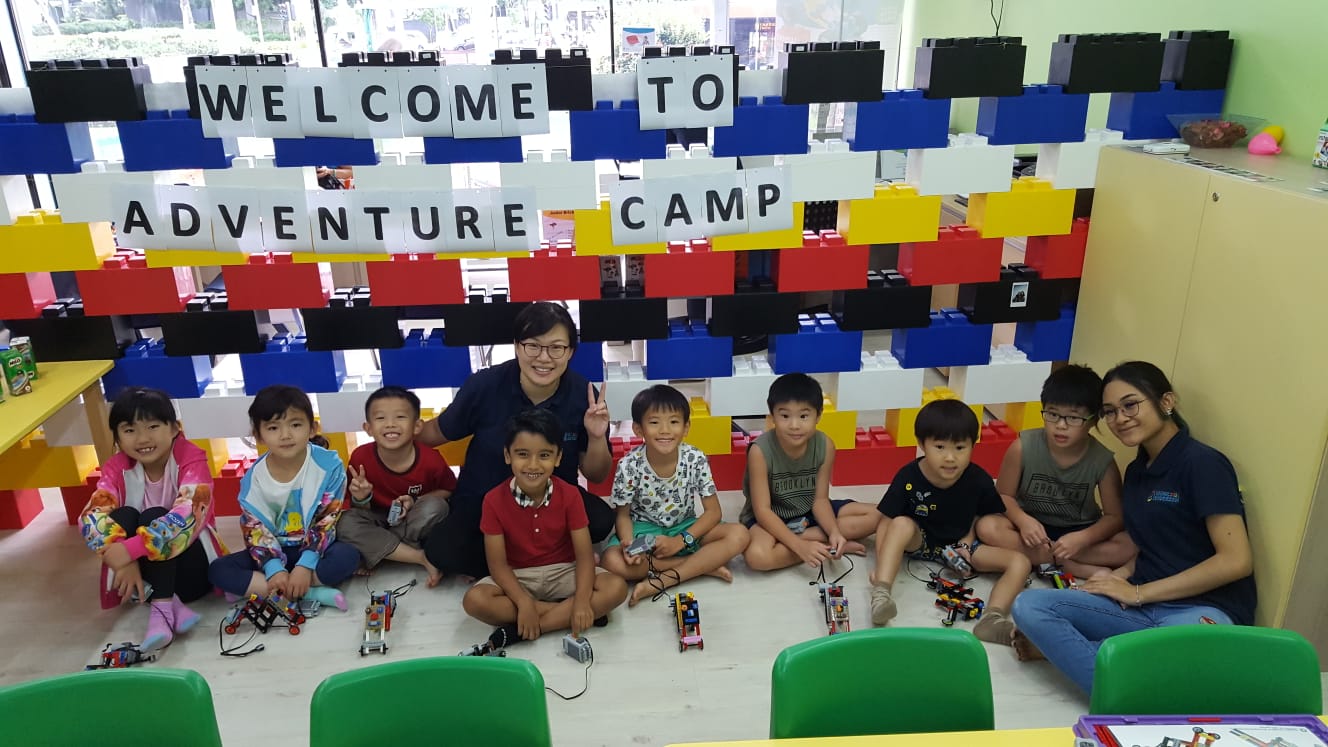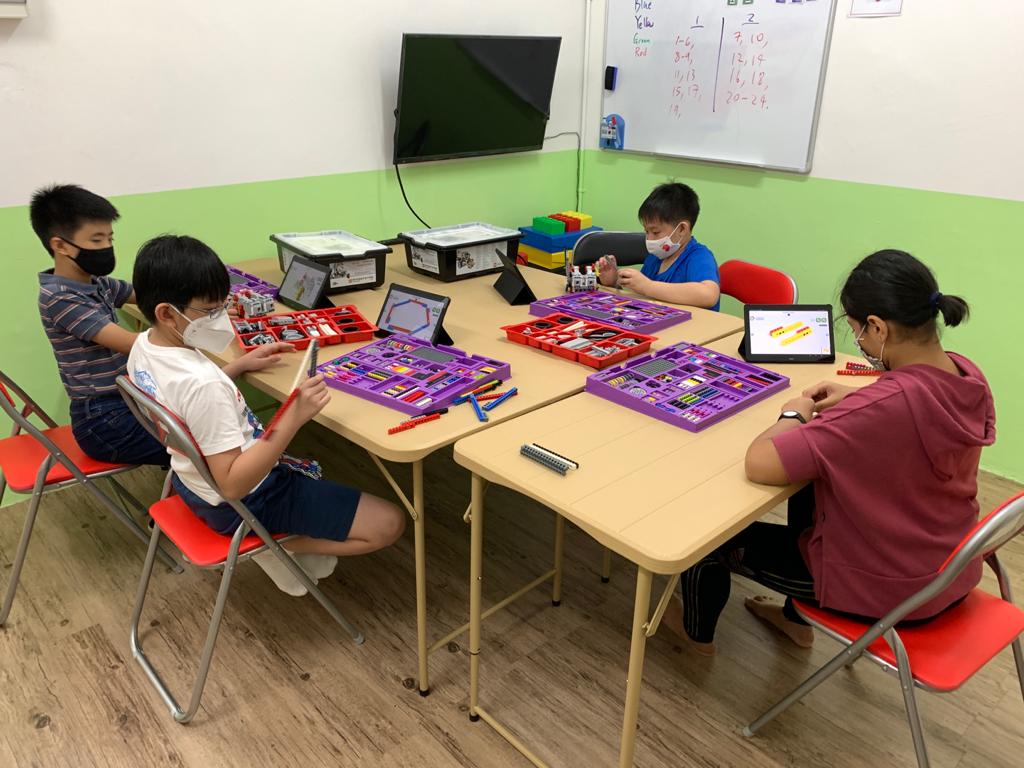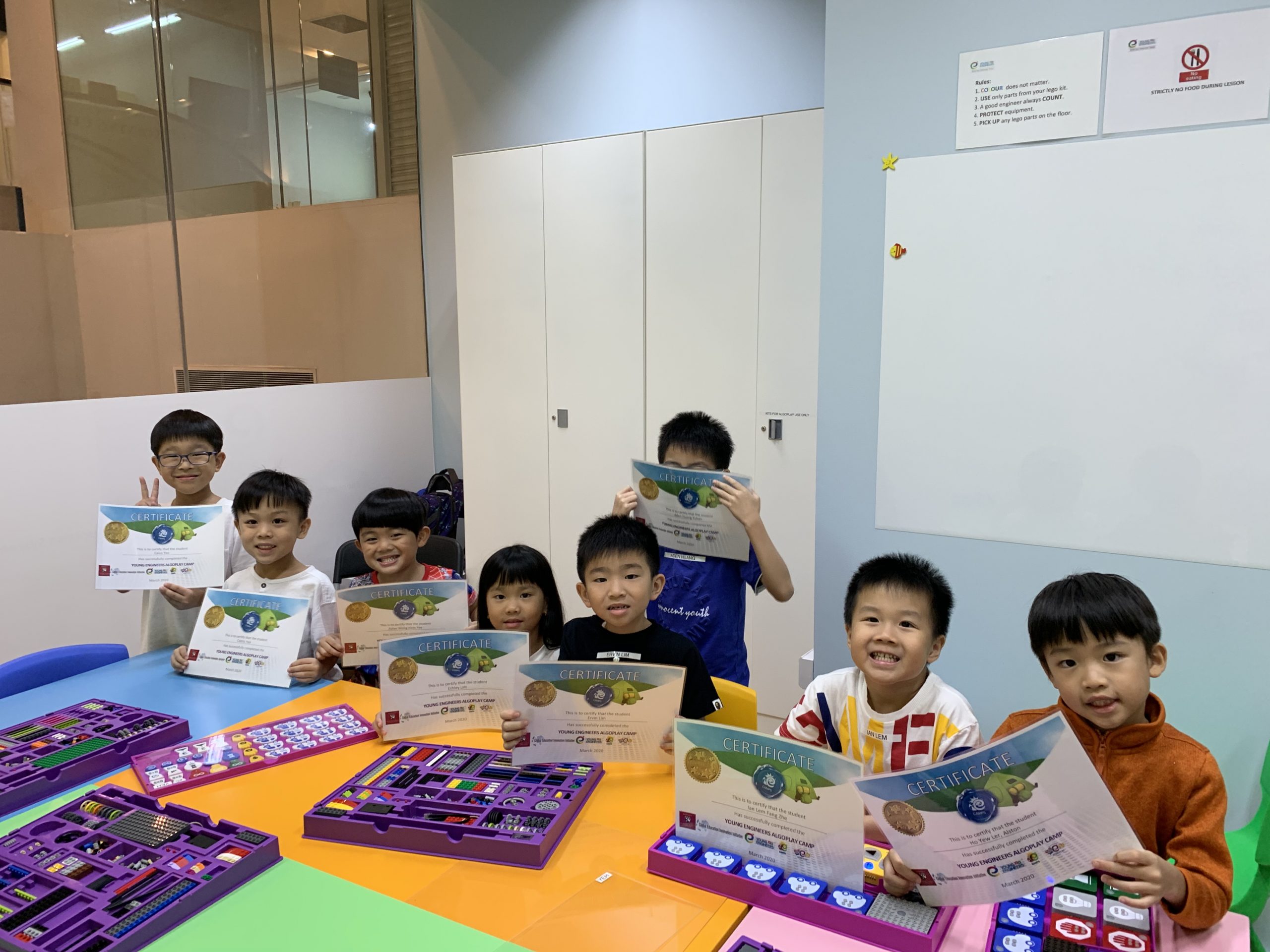“Robotics and other combinations will make the world pretty fantastic compare with today.”
-Bill Gates
Robotics has been one of the most important 21st century skillset needed to survive in the 4th technological revolution. Can your kids afford to skip this module?
Wikipedia definition:
"21st century skills comprise skills, abilities, and learning dispositions that have been identified as being required for success in 21st century society and workplaces by educators, business leaders, academics, and governmental agencies. This is part of a growing international movement focusing on the skills required for students to master in preparation for success in a rapidly changing, digital society. Many of these skills are also associated with deeper learning, which is based on mastering skills such as analytic reasoning, complex problem solving, and teamwork. These skills differ from traditional academic skills in that they are not primarily content knowledge-based.
During the latter decades of the 20th century and into the 21st century, society has undergone an accelerating pace of change in economy and technology. Its effects on the workplace, and thus on the demands on the educational system preparing students for the workforce, have been significant in several ways. Beginning in the 1980s, government, educators, and major employers issued a series of reports identifying key skills and implementation strategies to steer students and workers towards meeting the demands of the changing workplace and society."
Robotics
Robotics takes education technology to a new level, creating the next evolution in teaching. That’s because introducing robotics to schools means making STEM (Science, Technology, Engineering, Mathematics) skills and knowledge hands-on and fun, to prepare students for the future in a way that feels more like creativity and less like homework.
Robotics requires all of the subjects of STEM, so it’s a well-cover approach to educational technology and learning. As the world evolves to this new era of globalisation brought upon by the Fourth Industrial Revolution, big data analytics, robotics, artificial intelligence (AI) and wireless technologies (5G) are the new norms shaking up how we live and work.
Why is Robotics so important for learning?
Robots have always been a captivating piece of technology, programmable to move, make noise, light up, and follow instructions as directed. It is one of the most fun and educational activity to build one’s own robot and controlling it with how the student perceive it should be doing.
In school syllabus, robots encourage problem-solving, creative thinking, and a healthy mindset for competition that drives innovation from students.
Coding and other STEM concepts can seem very mind boggling, especially to younger students. Reading about technology or robotics in a book is perhaps the traditional way to learn, but putting that theory into practice by building or controlling a robot is hands-on learning that sticks around for the future. It also takes teamwork to make a robotics project run smoothly, and that’s a skill everyone needs.
Young Engineers Singapore offers a various of STEM Robotic and coding classes and holiday programs with the intent to make it educational and entertaining environments. Our educational syllabus and tools are used worldwide with 46 countries adopting our pedological method. And our 21st century education has been endorsed by Harvard Graduates School and local NIE.
Our Program
Junior Bricks Challenge - STEM Program
Children start playing with Lego when they are 3 years old. Through Lego, they develop fine motor skills and the ability to work progressively in stages, they acquire planning skills and enjoy an imaginative and social game. Lego serves as tool that evokes motivation and a desire to develop such skills.
The program will expose the children to the concept of creative leisure, placing an emphasis on planning and execution skills, flexibility and social interaction with their peers. The children will learn how to independently build models in stages and increasing levels of difficulty. They will get to know the models’ functional uses and expand their usage with appropriate building additions. In addition, the children will play with their group mates and the game will combine social rules, such as playing in turn, cooperating in a group toward achieving a joint product, structured game with instructions and rules, imaginary and free play.
AlgoPlay - Coding Program
Young Engineers believes in teaching through the Spiral Learning Technique. In this method, each enrichment program builds on the previous program’s curriculum. In addition, we always encourage newcomers and reteach lessons to make sure all students are up to speed.
With the tangible coding language of Algobrix®, students begin by constructing a building block model, then create various lines of code using function & Parameter blocks. Finally, by pressing the Play block, the robot will perform the coding sequence.
By matching function and parameter blocks together, the child creates a command for the robot. For example, moving it forward or turning on a red light. By putting the blocks together one after the other, it creates a code that the model will execute.
In each lesson, the student will perform high level programming tasks such as Algorithm planning, Functions & Parameters, Conditioning, Loops, Multithreading, Debugging, Race Condition, sensor applications and more.
AlgoPlay equips students with the professional skills necessary for understanding the logic behind almost any coding language that exists today.
Bricks Challenge - STEM Program
Bricks Challenge is our most popular enrichment program. The overall course objective is to impart theoretical and applied knowledge in the fields of Science, Technology, Mechanical Engineering, and Math (STEM) by using LEGO® technic parts and other exciting tools.
The main goal of the course is to illustrate content through stories and demonstrations. Our students will learn math and physical principles through intuitive study, develop their independent learning and improve their building skills.
The course will provide mathematical integration between physical laws and the simple calculations to support them. The laws and mathematics are both illustrated through the construction of exciting LEGO® bricks models. Once the concepts have been demonstrated students enjoy hands on building the YE LEGO® models which provides experiential learning and reinforces the lessons topic. To carry out the building process, students receive a tailor made kit developed by Young Engineers
Galileo Technic - STEM Program
The Galileo Technic advanced enrichment program offers broad knowledge in Science, Technology, Mechanical Engineering, and Math (STEM).
Students explore machines from a professional engineering perspective, focusing on identifying solutions and promoting teamwork to build complex mechanisms.
The program provides an advanced level of thematic study, implementing mechanical engineering principles through building LEGO® parts based models. By analyzing physical, mathematical and technical aspects of a machine’s operation, students will implement the most efficient method for building their machine. The Galileo Technic program utilizes the spiral learning method where students study a certain topic, investigate it from different angles and contexts while integrating the core processes frequently applied by engineers.
This is an in-depth program to extend the Young Engineers – Bricks Challenge program; students will use expert level engineering thinking by considering the physical and mathematical aspects of building efficient machines. The program focuses on individual and group projects to prepare students for the dynamic 21st century working environment.
Robobricks - Coding Program
The Robobricks course objective is to introduce the students to theoretical and practical aspects of the fields of Technology, Software Engineering, Math and Entrepreneurship.
The course develops algorithmic thinking and program implementation, using the LEGO® WeDo graphic programming. During each lesson, students will build a robot using LEGO® parts and program it according to the required functionality. Most programming tasks will be performed using English terms.
This enrichment program objective is achieved when the students design a software and mechanical engineering project, study its market and use rhetorical methods to make a successful presentation to investors.
Robotics & Software Engineering - Coding Program
Robotics & Software Engineering course focuses on exploring the world of Robotics from a professional engineering perspective. Special emphasis on programming solutions will promote the creation of sophisticated and accurate robots to study the fields of Science, Technology, Mechanical and Software Engineering, and Math (STEM) comprehensively.
The R&SE enrichment program offers extensive team work and cooperation to reflect the complex engineering challenges that exist in the industry. The program aligns with the university engineering curricula in order to prepare students for the industrial world. Students will tackle the same engineering challenges and solve them by using the EV3 graphics programing.
6 Reasons To Choose Young Engineers STEM & Coding Robotic Program
- STEM and coding concepts will be taught in many different ways to allow them a different dimension of using it as an application. For example, centrifugal force can be taught with our Ferris wheel, Carousel and Laundry machine models. In this way, students will be able to grasp and appreciate the theory in greater depth.
- Our program is structure in such a way that key concepts and principles are first introduced in a fun and easy to understand ways such as showing an animation or relating them to everyday tasks. We make the students realized that Science and technology are always around us.
They will then start to build a model which further demonstrate the concept in an application way. Once they are done, they can exhibit their creativity by improving on it with additional features. Finally, they will be given a problem to solve. There is not a single second where they fail to learn, have fun and apply their knowledge in any application.
- Our curriculum is accepted and endorsed by renown university such as Harvard Graduate School in collaboration with Singapore’s NIE as the best way to impart STEM education.
What Our Customers Have to Say
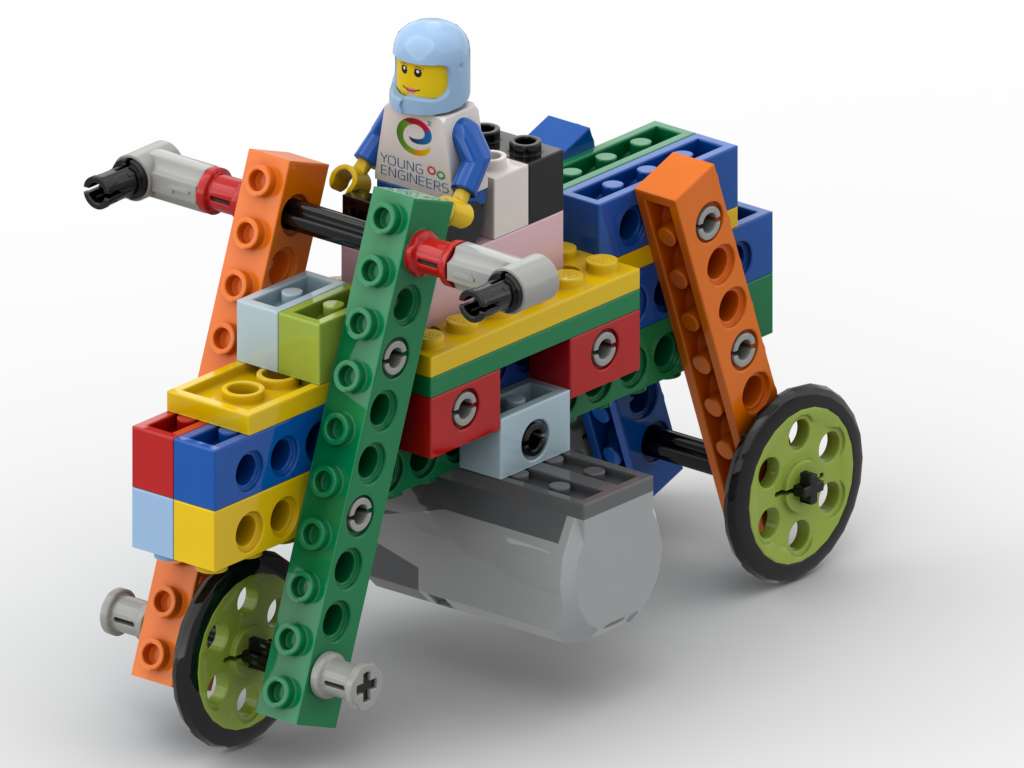
"Apparently it wasn't easy to find a Lego Robotic course for a five years old. Most courses available there are catered for elder kids who could at least handle a computer & mouse. So imagine how thrilled I was when I discovered Young Engineers. I am a fan of Lego but has zero knowledge of Robotics. It was my boy who kept pestering me that he wanted to join as he enjoyed the trial class he had in school before. Young Engineers staff and instructors are very friendly & helpful. I appreciated the flexibility given in make-up classes as we travelled often (hence missed quite a bit of the lessons). They are passionate & went beyond to make sure my boy understand & enjoy the lessons. The progress report was short but concise, detailed enough to allow parents insight of what had been learnt in the classroom & more importantly key areas for improvement. The fact that my boy was the one that has to rush me to the class every week is the best testimony of how much fun he has had. Thank you!"
Evi Yuwono
(Mummy of Adrian)
"James really enjoyed his classes at Young Engineers a lot. He has learnt engineering principles through fun play with LEGOs which is not taught in school. He is able to explain the concepts that he has learnt. The teachers and staff are very helpful and patient in teaching and helping him improve on his LEGO builts. We were glad to have enrolled him in this course. Thank you"
Caren
(Mummy of James, 9 YO)
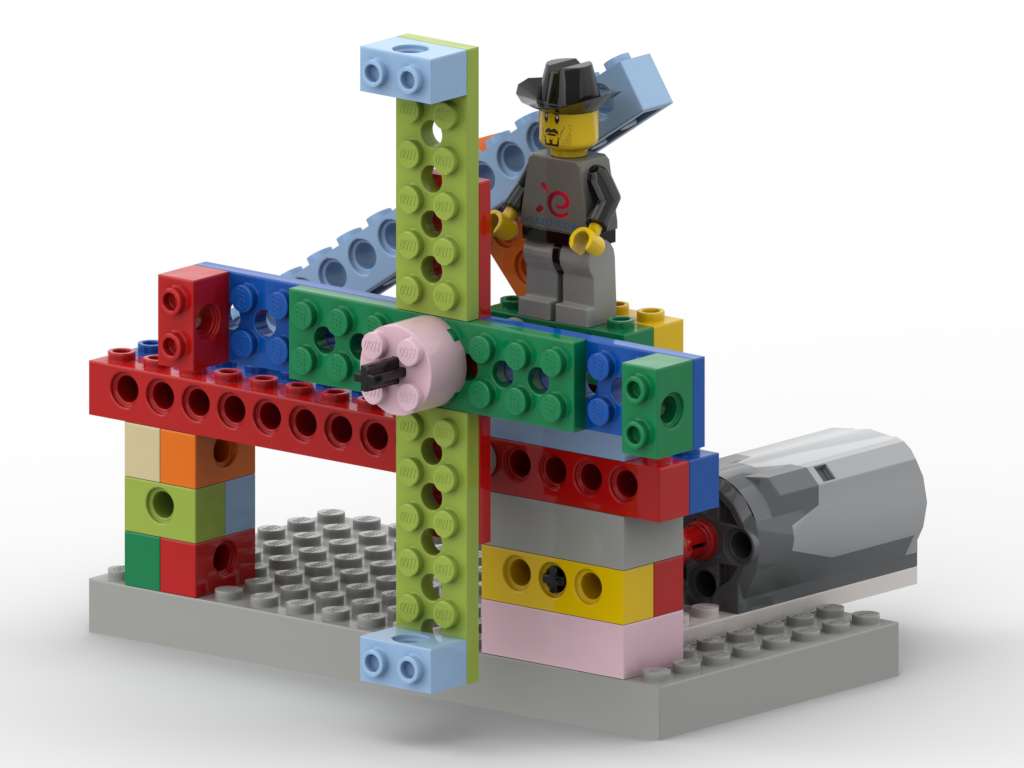
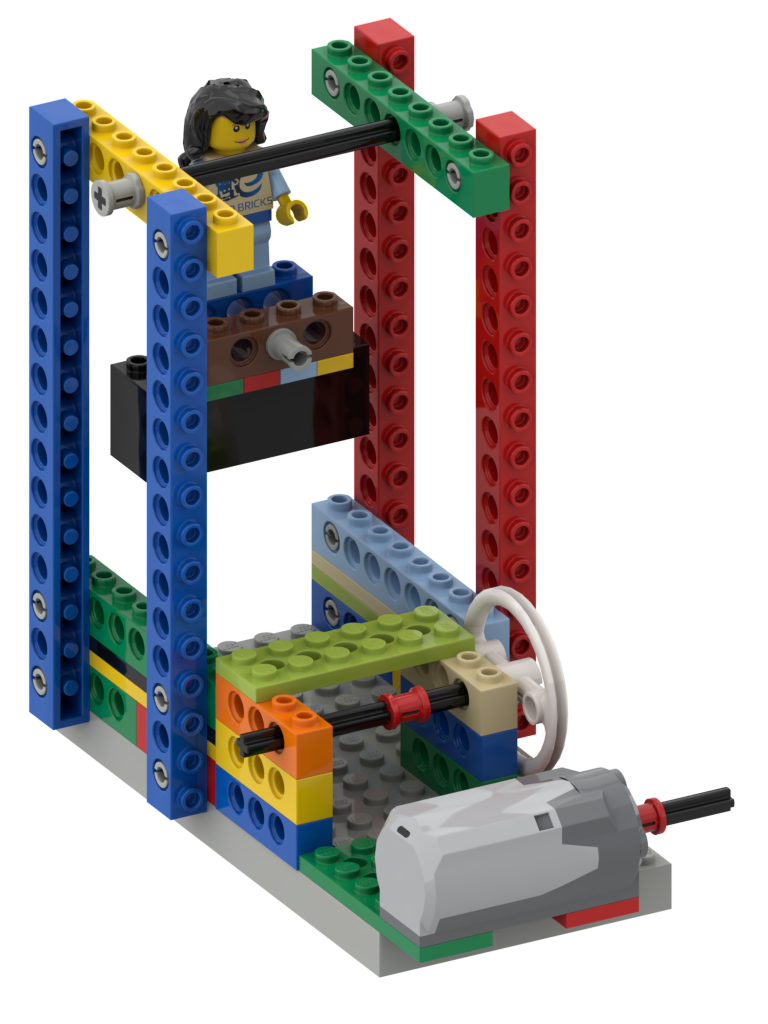
"I would like to thank Young Engineers and its helpful staff and instructors who are handing the program by providing the progress report and sharing many great information. This program serves the age appropriate for my kid. With time, it would help enriching the education purpose to the children learning life. My daughter loves it."
Jane Li
(Mummy of Ivy)
"The staff and instructors are very friendly and helpful. They provide feedback on student's progress and take photo to share with parents. The course material is easy for my kid to understand. My kid looks forward to attend his class every week. He is more confident with spatial ability and communicating his thought process. I will recommend this to all parents whose kids enjoy Lego and programming."
Isabelle
(Mummy of Brighton)
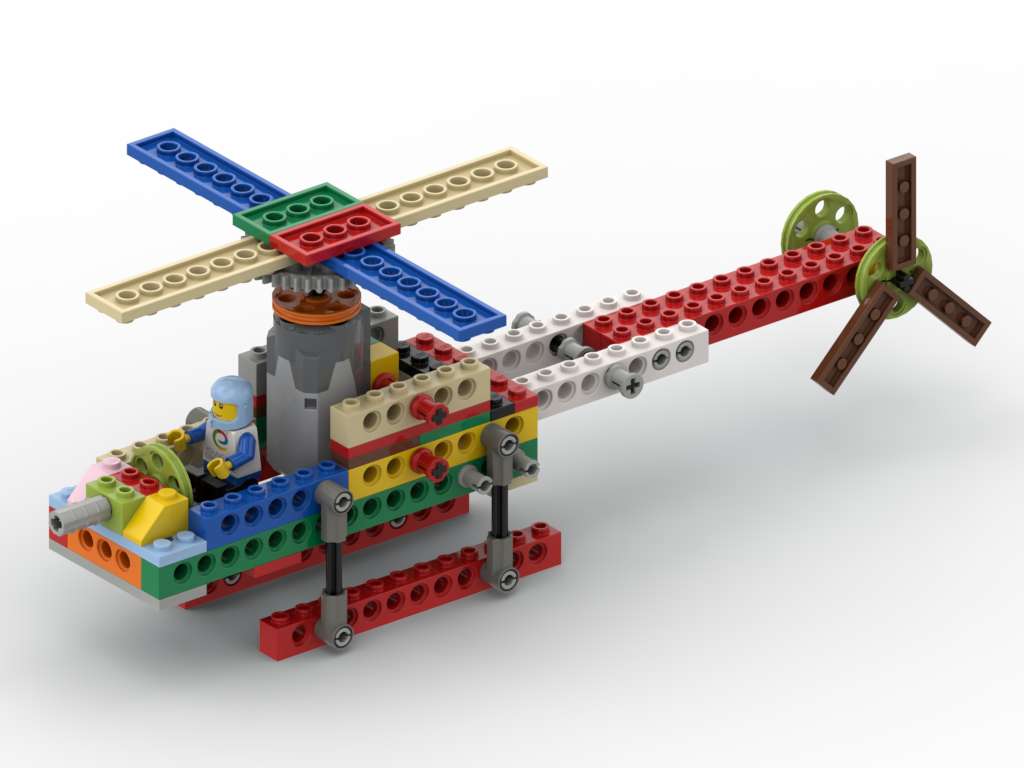
Student's Progress Report
Parents are always asking us what the kids are learning and models they make during the class. One of our delivery for every term ends, our instructors will be providing a report on what they do during the class. There are 5 skillset we are focusing on for every term.
- Fine motor skill
- Spatial Vision skill
- Social skill
- Independence
- Attention span
Young Engineers Singapore has 6 centers to serve the growing demand of STEM and coding programs through fun learning activities.
3 ways to register for a trial class from $38 to $65 (Subject to different programs).
Our class size is normally not more than 6 students in order to ensure our class quality. We cannot guarantee any slot availability (some programs tend to fill up faster).
Yes, we do charge for trial class as the students will be using some of the leading edge education tools (1 set per student) and experiencing the 21st century education system with Young Engineers International STEM and coding principles we impart to them during the trial lesson.
Option 1: Choose your preferred location and check out their programs and class availability.
Option 2
Click the button below to Whatsapp Us!
Option 3:
Fill up the form and our friendly customer service will contact you for the next available trial class date.
Class photos gallery
Want to know more about Young Engineers Singapore?
Find out more by clicking the button below!




